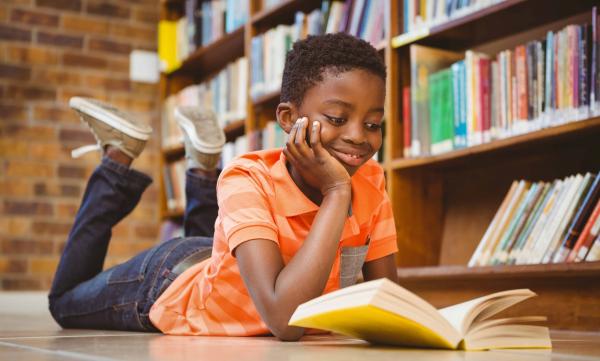
Children and adults may not be all that different when it comes to understanding language.
A new study out of the Massachusetts Institute of Technology found that children have trouble understanding simple words - like "and/or" - much in the same way adults do. They don't see "or" as a distinction or disjunction, but rather as a conjunction, like "and."
For example, let's say you tell your child they can either get cake or ice cream after dinner. The child may later insist on having both, since they see "or" more as an "and." They don't see "or" as a firm indicator of a choice, but a conjunction like "and" - something adults do, too.
This, according to the researchers, shows that children have a more sophisticated way of thinking than anticipated.
"[C]hildren use almost entirely the same approach as adults when it comes to evaluating potentially ambiguous sentences, by testing and 'strengthening' them into sentences with more precise meanings, when disjunction and conjunction ('or' and 'and') are involved," according to the study's press release.
But there is a problem with this line of thinking for youngsters - they don't think about how the sentence or options would change if they substituted "and" for "or," or vice versa, which it makes it harder for them to understand how to make choices.
"Children seem to interpret disjunction like conjunction," Danny Fox, co-author of the paper, said in a statement.
But this isn't something that happens overnight for children. In fact, youngsters don't have mature concepts of the English language until they're no longer infants, thanks to many of the efforts parents make to improve their literacy skills.
From their child's infancy, parents are encouraged to speak with their children in baby language for a number of reasons. I previously wrote about a study from McGill University that found 6-month-old babies rather hear a baby's voice compared to a female or male voice, which helps them improve their language skills.
Babies smile, laugh and move around more when they hear another baby's voice, which also makes them more interested in exploring new words to add to their own very limited vocabulary.
"Babies are much more interested in hearing other babies babble away than they are in listening to what their parents have to say," The Huffington Post UK reported. "And who can blame them? But aside from looking for a welcome reprieve from having to hear their mom and dad bang on about the same old tired topics of conversation, the researchers believe there could be a very important reason for this: It may help to kick start the processes involved in learning how to speak."
Experts encourage parents to talk like babies to their youngsters for this very reason. Baby talk teaches infants to move their mouths and develop their own language. This language is often referred to as "parentese," according to PBS.
But talking to your baby like a baby won't help the baby develop adult language concepts easily. In fact, experts and parents often believe babies learn their language skills from "copycatting" their parents.
But according to Scientific American, this isn't the case. Babies don't have the mental capacity to learn sophisticated levels of language until they are ready.
"Children don't learn to walk until their bodies are ready. Likewise, they don't speak multi-word sentences or use word endings and function words ('Mommy opened the boxes') before their brains are ready," according to Scientific American.
Similarly, children go through certain stages of language development. For example, youngsters don't speak in two-words sentences until they've learned a certain amount of words, according to Scientific American.
"Until they've crossed that linguistic threshold, the word-combination process doesn't kick in," Scientific American explained.
So how can parents help their children develop their language skills from an early age? One way may be reading aloud to their child, rather than just talking. A research paper from the University of California, Santa Cruz, found that reading to children is more effective than talking when trying to build a youngster's language.
This is because books are often filled with words you wouldn't use in everyday language, which gives children exposure to new phrases and terms.
"We talk with a lazy tongue," researcher Dominic Massaro told EdSource. "We tend to point at something or use a pronoun and the context tells you what it is. We talk at a basic level."
Too much talking exposes children to words that are used for conversation, but won't help youngsters become sophisticated. Massaro said reading can help children from families with less education become smarter and more sophisticated with language.
"Given the fact that word mastery in adulthood is correlated with early acquisition of words," he said, "shared picture book reading offers a potentially powerful strategy to prepare children for competent literacy skills."
Related links
Why is the first word babies say so crucial? It paves the way to building a vocabulary
How to make your child smarter before he or she is even born
Bilingual parents: Talking to your child in your native language makes it easier for them to learn English

